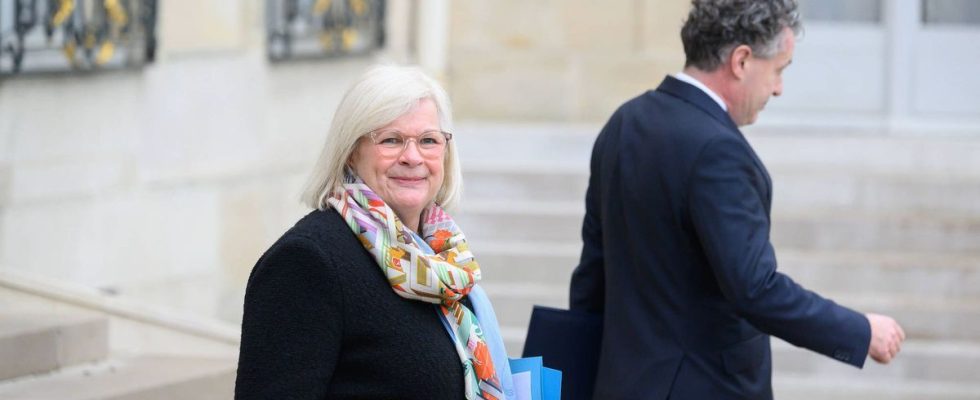Published on
Updated
Reading 3 min.
In the new government formed by Prime Minister Gabriel Attal, the Ministry of Health, grouped with that of Labor, falls to Catherine Vautrin, an LR figure once tipped to become Prime Minister. Who is she and what files await her?
And seven! Since the first election of Emmanuel Macron in 2017, the Ministry of Health has continued to see the names parade. This January 11, 2024, it is a woman, figure of the LR, Catherine Vautrin, who was responsible for taking the reins of not one, but two merged ministries: that of Health and Solidarity, and that of Labor. On the health side, she succeeds Agnès Firmin le Bodo who endorsed by “interim” the ministry after the resignation of Aurélien Rousseau during the vote on the Immigration Law.
She will also be supported by Agnès Pannier-Runacher, delegate minister, who started as a civil servant in the public service as cabinet director of the DG of Public Assistance – Paris Hospitals, Rose-Marie Van Lerberghe, in charge of the 2007 hospital plan. According to information France Infoit is undoubtedly the latter that we will see more on the ground.
Who is Catherine Vautrin?
Among the names announced in this new government chosen by Gabriel Attal, the name of Catherine Vautrin, close to Nicolas Sarkozy, may have surprised. However, the 63-year-old politician is not just starting out and has already been approached by the macronie. Minister for Social Cohesion under Jacques Chirac, then president of Grand Reims, she was even tipped to become prime minister in 2022, before being overtaken by Elisabeth Borne. She now inherits a dual portfolio, health and work, which risks occupying her full time, or even more.
His appointment at the head of this “super” ministry, however, leaves trade unionists and health professionals doubtful about the scale of the task. Some are also concerned by the minister’s past positions. According to Agence France Presse, LGBT associations in particular are concerned: Catherine Vautrin voted against the law for marriage for all in 2013 and participated in the Manif pour tous while she held the position of deputy for the 2nd constituency of the Marne. A “bad signal” they regret.
Health: what are the sensitive issues at stake?
The decision of a dual ministry in this period of crisis in medical care also raises questions among health stakeholders. Catherine Vautrin thus inherits several sensitive files.
A report of medical desertification
The figures are alarming, 30% of French people live in a medical desert and 6 million of our fellow citizens do not have a regular doctor. Certain measures currently decided: dual employment retirement possible for retired doctors, a fourth year of internship for future general practitioners, the encouraged hiring of medical assistants in order to free up medical time, the transfer of skills to pharmacists or nurses . Will this be enough when a wave of retirements of doctors is expected in the next ten years?
Fee-for-service payment weakened
President Emmanuel Macron said in December: “We must tell health professionals: you are paid too much on a fee-for-service basis, which sometimes encourages you to do unnecessary things, this is not the right method.”and wishes to move towards remuneration based on the number of patients treated, rather than per procedure. A flammable file that Catherine Vautrin will have to manage skillfully.
The hospital crisis
The hospital is in deep crisis and the Grenelle health measures have not been able to save it from the deterioration of working conditions. The causes of the crisis are, however, known: lack of financial resources and shortage of personnel.
The law on the end of life is suspended
Finally, the subject of the end-of-life law carried by the various ministers of health is still awaiting the president’s final decision, between strengthening palliative care and active assistance in dying. But the conditions are slow to be defined and the subject has not yet found any solution. The law was initially supposed to see the light of day at the end of the summer, then in February. Catherine Vautrin will have to quickly share her position on this sensitive issue.
